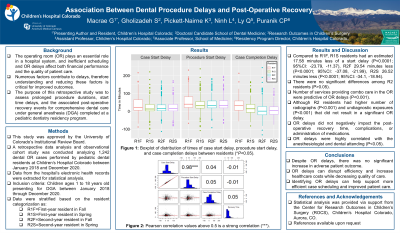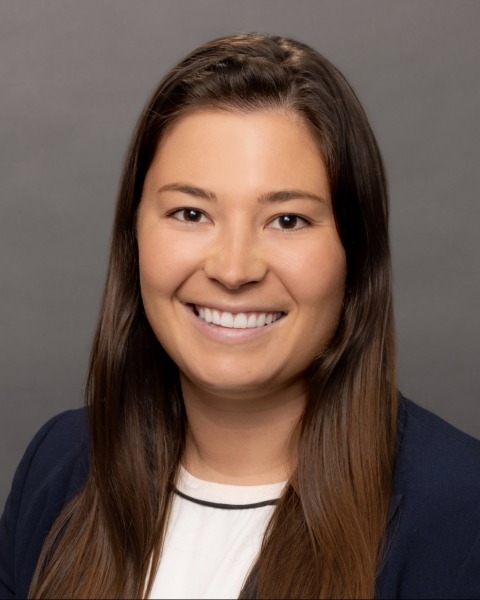Other
Association Between Dental Procedure Length and Delays on Post-Operative Recovery
115 - Association Between Dental Procedure Delays and Post-Operative Recovery


Genevieve P. Macrae, D.MD
Pediatric Dental Resident
Children's Hospital Colorado, Aurora, CO
Children's Hospital Colorado
Denver, Colorado, United States- LN
Lila Ninh, D.D.S.
Clinical Assistant Professor
Children's Hospital Colorado, Aurora, CO
Aurora, Colorado, United States 
Chaitanya P. Puranik, B.D.S., M.S., M.Dent.Sci., Ph. D. F.A.A.P.D., Diplomate (he/him/his)
Residency Program Director
Children's Hospital Colorado
Children's Hospital Colorado and School of Dental Medicine, University of Colorado Anschutz Medical Campus
Aurora, Colorado, United States
Presenting Author(s)
Research Mentor(s)
Program Director(s)
Purpose: The operating room (OR) plays an essential role in a hospital system due to its potential for generating revenue despite its immense financial burden. Inefficient scheduling and OR delays affect both financial performance and the quality of patient care. Numerous factors contribute to delays, therefore understanding and reducing these factors is critical for improved outcomes. The purpose of this study is to retrospectively assess prolonged procedure durations, start time delays, and the associated post-operative recovery events for comprehensive dental care under general anesthesia (DGA) completed by first- and second-year residents in a pediatric dentistry residency program.
Methods: A retrospective data analysis and observational cohort study was conducted analyzing 1,242 dental OR cases performed by pediatric dental residents at Children’s Hospital Colorado between January 2018 and December 2020. Data from the hospital’s electronic health records (EHR) were extracted for statistical analysis.
Results: Statistical analysis of the data revealed an increase in delays among first-year residents (P < .0001) in the first 6 months of residency training. After the first 6 months, there was no significant difference in delays between first- and second-year residents. Additionally, the pre-operative and procedure delays varied among dental attendings and anesthesiologists. Despite these delays, there was no significant increase in adverse post-operative outcomes for patients.
Conclusions: Delays can disrupt efficiency in the OR and have the potential to increase costs and decrease quality of care. Identifying these delays can help support more efficient case scheduling to account for differences in training and experience among residents.

.jpg)